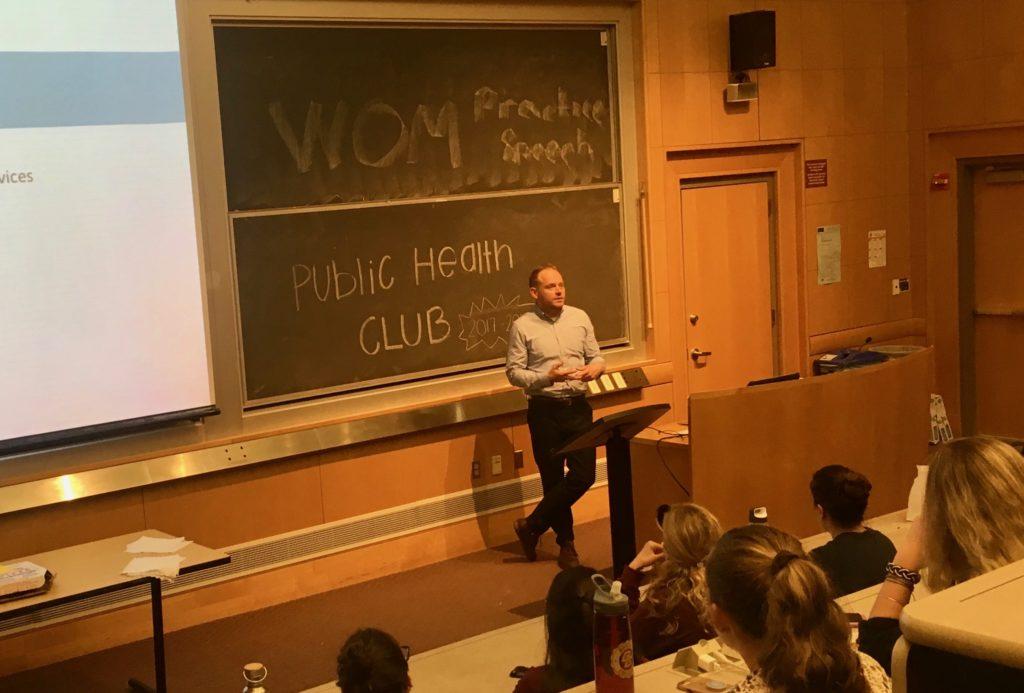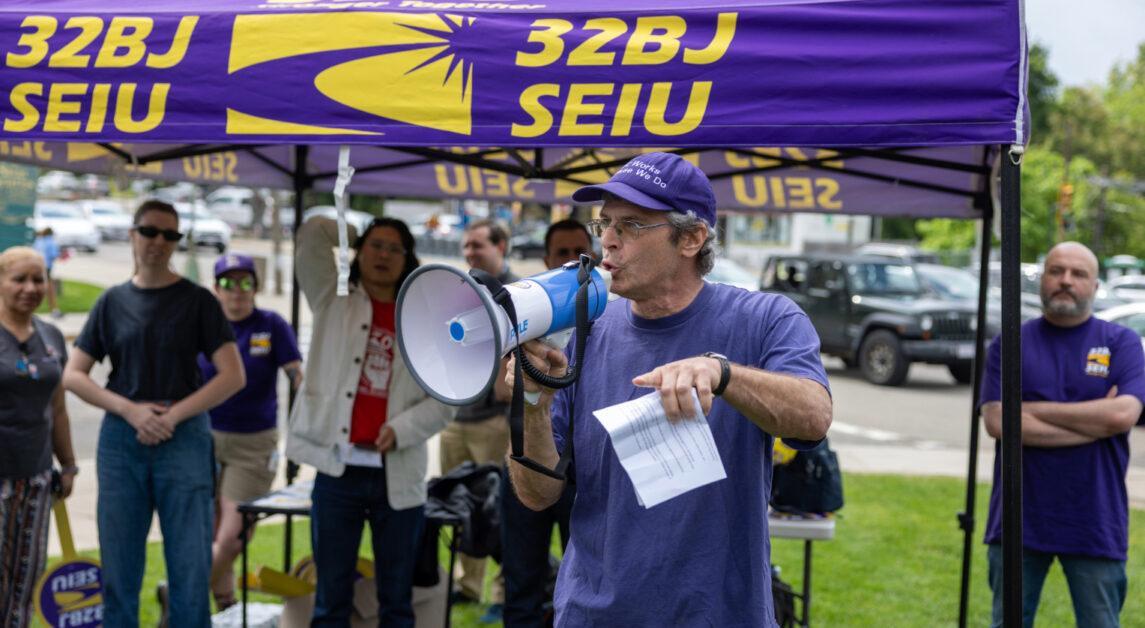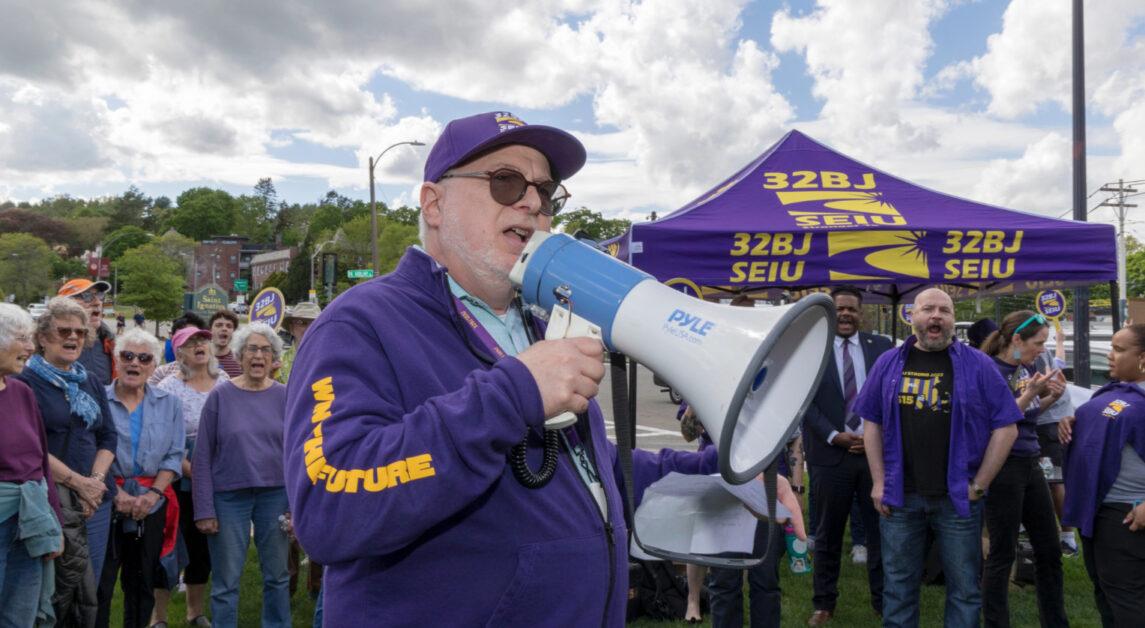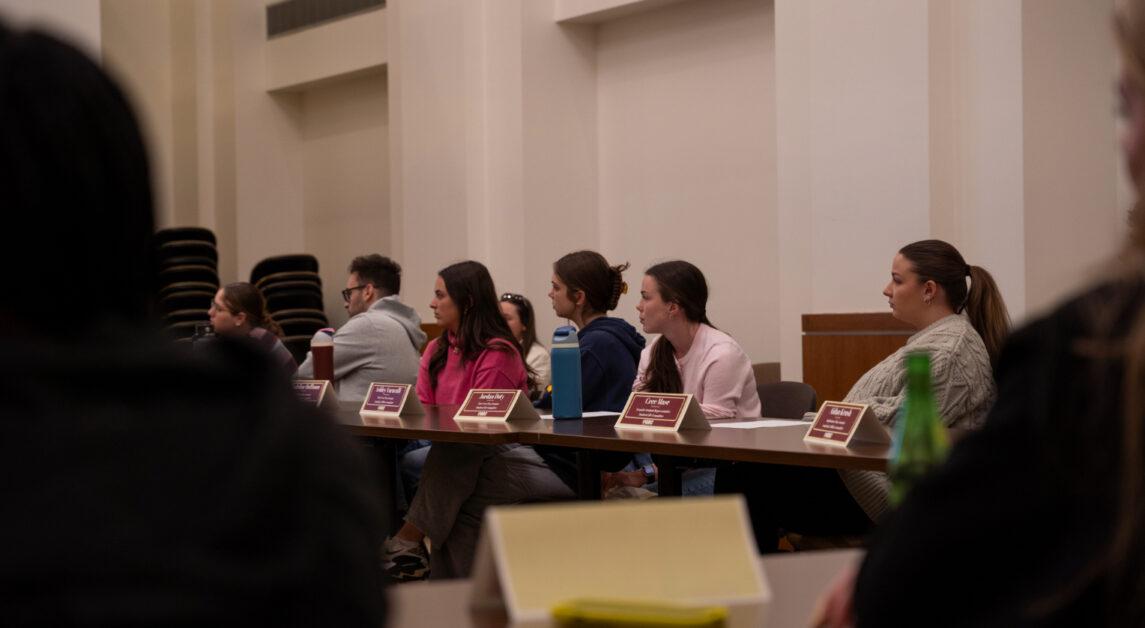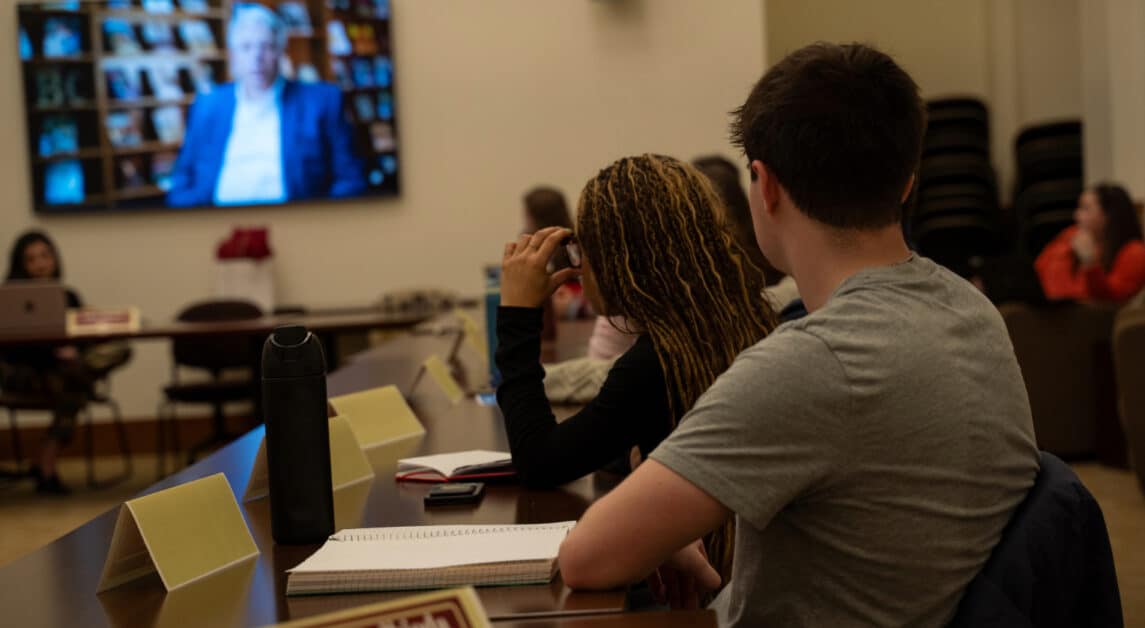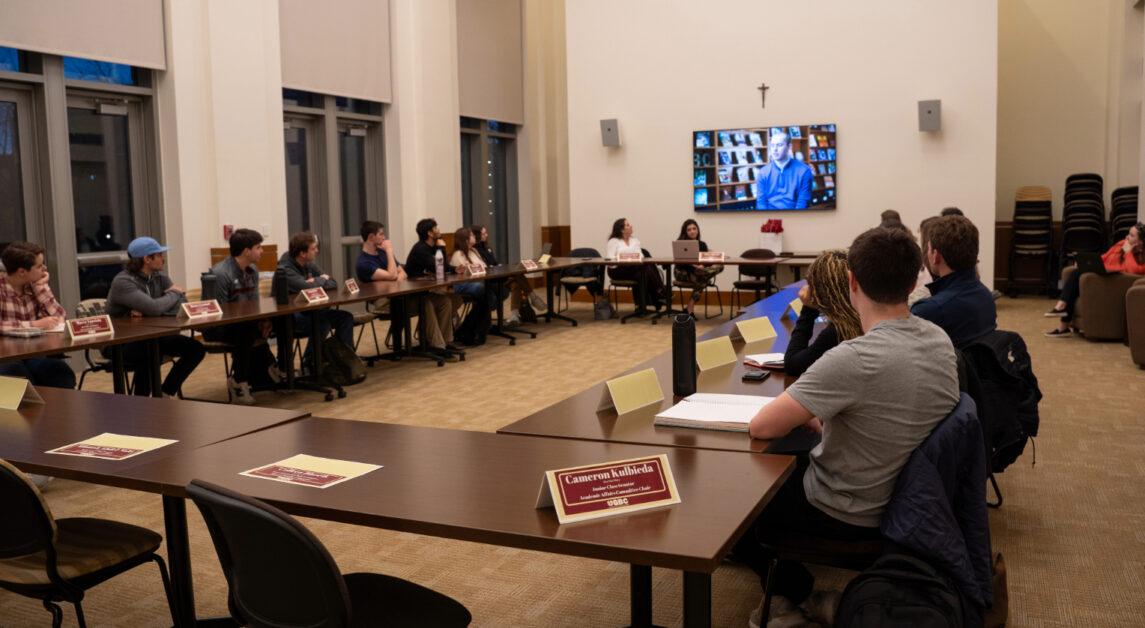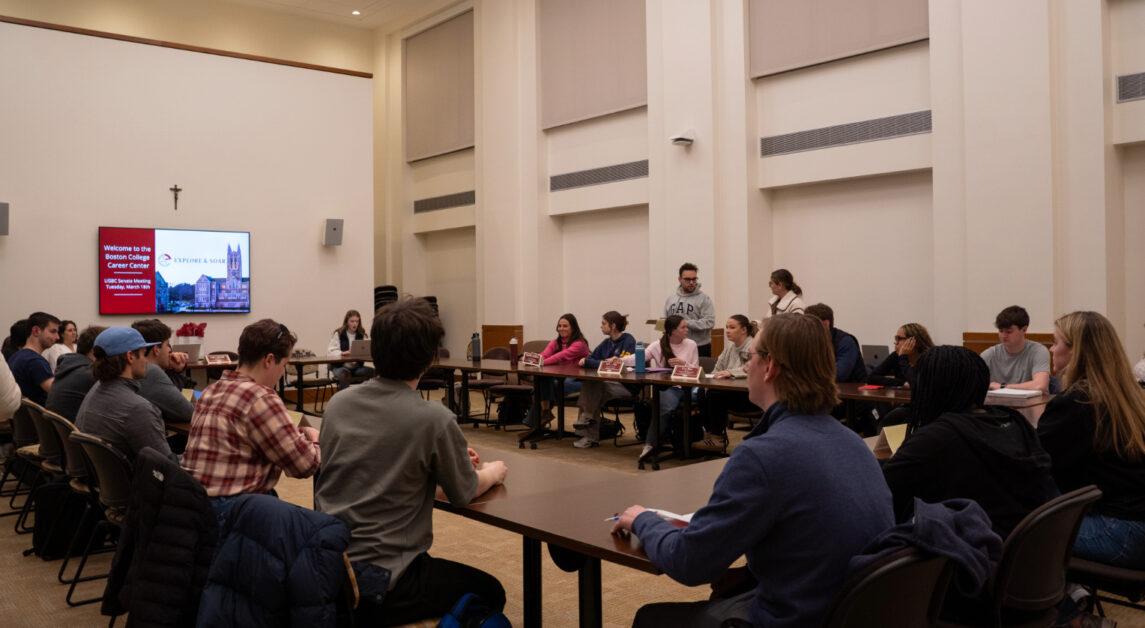Brendan Little, the policy director for Boston’s Office of Recovery Services, spoke about Massachusetts’ ongoing problem of opioid abuse Wednesday night. Little, a key member of the first municipal recovery office in the United States, highlighted how a holistic approach characterized by both immediate and long-term aid for drug-abusers is necessary for the city of Boston to resolve its current opioid epidemic.
Engineered by Mayor Martin J. Walsh in 2015, the Boston Office of Recovery Services provides recovery treatment for individuals with substance abuse disorder within the city of Boston. Given a year of funding by Blue Cross Blue Shield, the office was able to build from an existing infrastructure of addiction hotlines, recovery homes, and overdose prevention centers in order to establish effective public health programs in a short period of time.
One such program is Providing Access to Addictions Treatment, Hope and Support (PAATHS), a working overdose response and addiction treatment system that Little believes has greatly improved access to recovery resources within the city of Boston. PAATHS assigns individuals in need of treatment and support to various placements within the city through the drug-abuse hotline “311.” The program works with drug-abusers to provide all levels of treatment including—but not limited to—overdose prevention, long-term rehab, and job training. Little said that the impetus for the creation of PAATHS and the 311 hotline was a lack of a well-known contact for people seeking treatment within Boston.
“People are saying ‘I just don’t know where to go for help’ … so we thought, why don’t we build some infrastructure behind 311 through the Boston health commission to support these people,” Little said.
The key to the Recovery Office’s overdose prevention initiatives within the past two years has been a working relationship with first responders. According to Little, communication between the office, the PAATHS program, and first responders has ensured a better allocation of recovery treatment and immediate overdose aid, with responders gaining increased access to narcan—a drug frequently used to prevent opioid related deaths. The Recovery Office has also collaborated often with the Boston Police Department in order to pair recovery coaches with officers to provide treatment for opioid-abusers that may be struggling within the criminal justice system.
Many returning offenders within the system require such treatment, and a large number of individuals within correctional facilities are currently struggling with abuse. Over 70 percent of the inmates in Suffolk County Correctional Facilities self-identify as substance-abusers, Little said.
This pattern prompted the Recovery Office to establish a separate system of treatment within correctional facilities called the Recovery Reentry Partnership. Through this program, the office provides inmates in Suffolk county with informational sessions and counseling, affording them access to addiction recovery support, educational opportunities, housing assistance, and faith communities.
Overdose prevention and recovery treatment, however, are not enough to fully address the opioid problem within the United States, Little said. He asserted that providing drug-abusers with some form of purpose after recovery is key in preventing relapses. For this reason, the Recovery Office, along with the Gavin Foundation and Warren and Doris Buffet’s Letters Foundation, engineered the PAIR initiative. The PAIR initiative was created to provide recovering drug-abusers with housing, education, and jobs. Still in its pilot stage, the PAIR initiative will allocate $2,500 to each individual in the program in order to provide opportunities in those three areas.
While there is no denying that opioid abuse is still an ever-looming problem, institutions such as the Boston Recovery Office are making enormous steps towards improvement. Confirmed and estimated opioid-related overdose deaths in 2017 totalled 1,977 in Massachusetts, according to state government data—an 8 percent decrease in deaths from the 2,155 recorded in 2016.
Little holds that the success some states are seeing in overdose reduction can be partly attributed to a more understanding approach towards addiction. In addressing the issue with some amount of humanity, Little believes that public health officials and municipal legislatures can really begin to effect change within the country by viewing opioid-abuse more as a sickness and less as a purposeful crime.
Featured Image by Aidan Latona / Copy Editor

